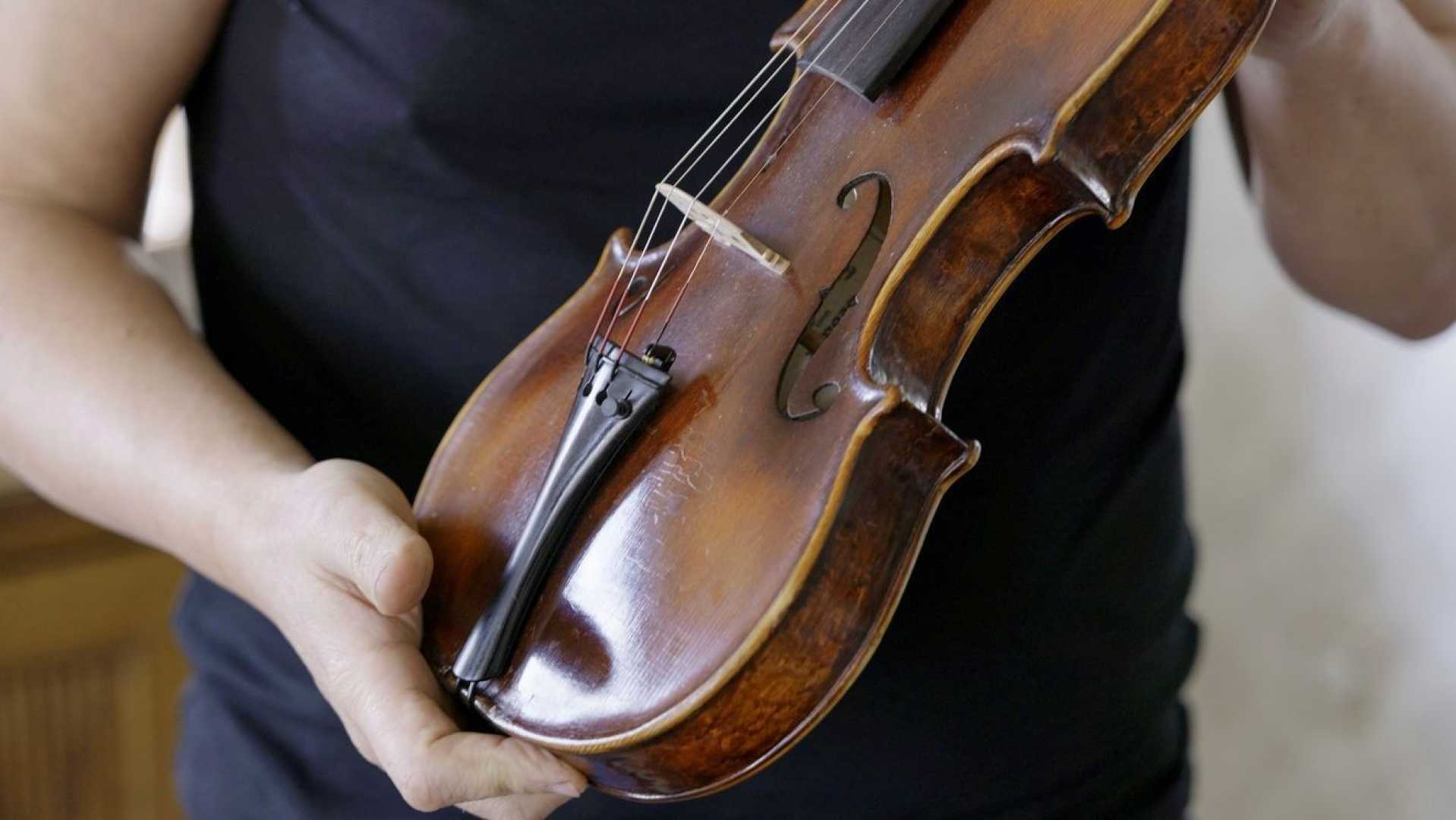News
Violin Leads to Discovery of Secret WWII Concentration Camp Note

Dachau, Germany – A secret note hidden inside a violin has been discovered, revealing the harrowing experience of a Jewish prisoner during World War II. The violin, crafted by Franciszek “Franz” Kempa in 1941 while imprisoned at Dachau, held a message that encapsulates the struggle of life in a concentration camp.
The note was found by a repairman who opened the violin to investigate its origins. It read, “Trial instrument, made under difficult conditions with no tools and materials. Dachau. Anno 1941, Franciszek Kempa.” The instrument showed signs of skilled craftsmanship but poor quality materials, raising questions about its backstory.
Szandra Katona, one of the Hungarian art dealers involved in the repair, noted the contradiction between the violin’s design and the materials used. “If you look at its proportions and structure, you can see that it’s a master violin made by a man who was proficient in his craft,” she said. The poor quality of wood and tools suggested a desperate situation.
Dachau, the first concentration camp established by the Nazis in 1933, became infamous for its brutal conditions and significant loss of life, with at least 40,000 deaths reported. Although musical instruments were present in many camps for propaganda reasons, Kempa’s violin is unique as it was made within the camp itself.
Documents from the Dachau memorial museum show that Kempa survived the war and returned to Poland, where he continued making violins until his death in 1953. The violin’s discovery has revived interest in its creator’s story. Tamás Tálosi, another dealer, emphasized the instrument’s significance, calling it the “violin of hope.” He explained that focusing on a task can provide strength in difficult situations.
The circumstances of how the violin left Dachau remain unclear. This discovery not only highlights the resilience of the human spirit in the darkest times but also serves as a poignant reminder of history.












